近些年,在出京的路上常能看到一句宣传语:“这么近、那么美,周末到河北”。随着轨道交通和高速公路的路网建设,河北的许多市县成为了京津冀三地居民周末休闲旅游的新目的地。
In recent years, a slogan can often be seen on the road out of Beijing: “Spend your weekends in beautiful Hebei”. With the construction of rail transit and highway networks, a number of towns in Hebei have become new destinations offering weekend leisure travel for residents of Beijing, Tianjin and Hebei.

▲被山林环绕的KALHA酒店 ©刘晶
▲KALHA Hotel surrounded by mountains ©Liu Jing
“沃里屯unico”便是在这样的背景下诞生的。项目所在地河北省张家口市赤城县方家梁村,距崇礼高铁站约35公里。从北京出发,驱车穿越接连的隧道群和与蜿蜒的盘山公路,沿途尽享美丽的乡野风光,3个小时后便可抵达这片农田广布、被山林环抱的静谧村落。
In this context, “Unico” was born. The project is located in Fangjialiang Village, Chicheng County, Zhangjiakou City, Hebei Province, about 35 kilometers from Chongli High Speed Rail Station. After a 3-hour drive from Beijing through a series of tunnels and winding mountain roads, enjoying the beautiful countryside along the way, visitors will reach this quiet village surrounded by farmland and forests.
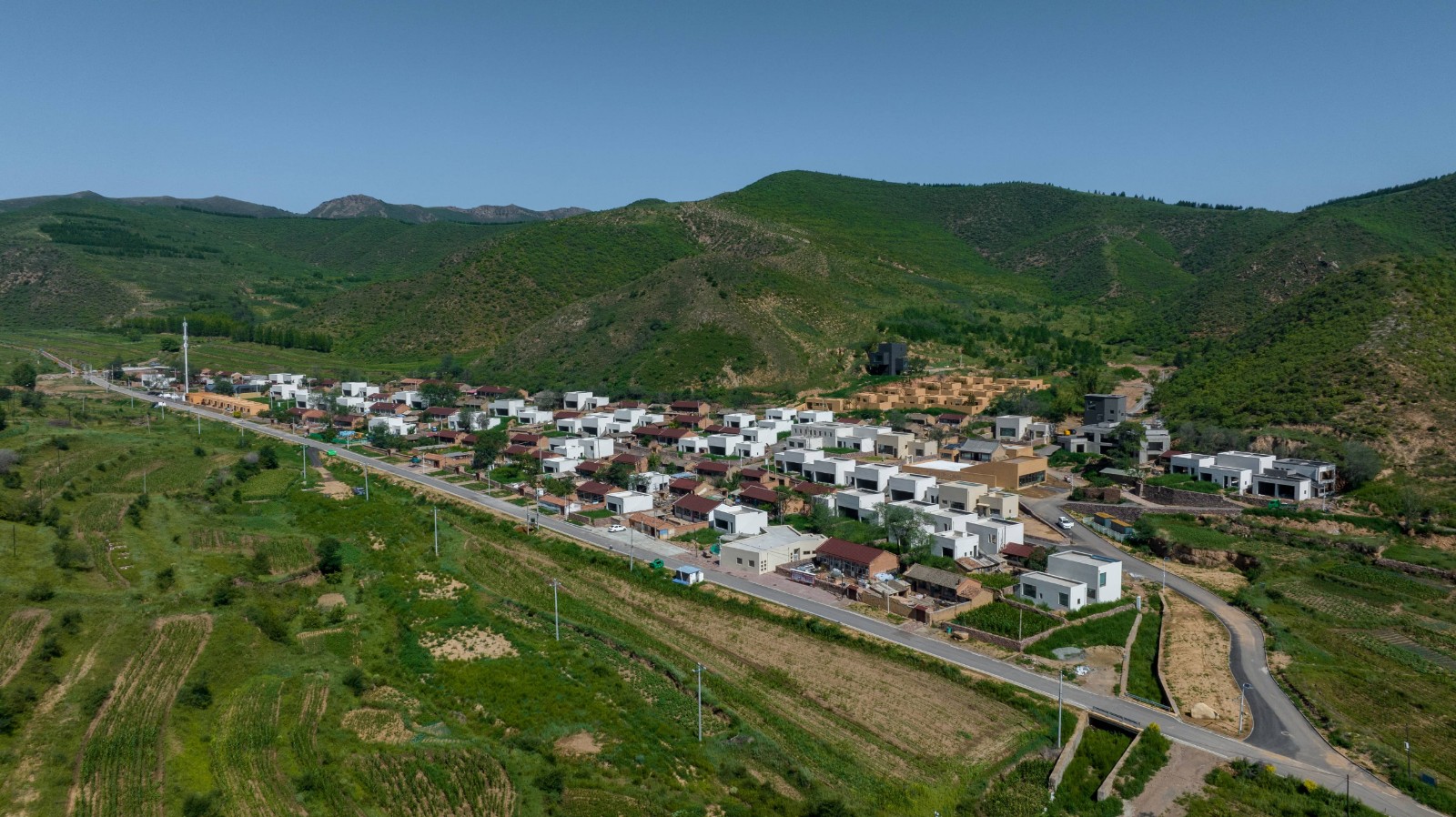
▲“沃里屯”村落更新现状 ©刘晶
▲“Unico” Village Renewal status quo ©Liu Jing
沃里屯作为乡村共建项目,旨在为城市居民提供一种新的生活可能性。首批工程涉及村中60余个空置院落,每个院落占地面积200~400平方米不等。其中45个院落用于居住,10个院落将集中作为酒店使用,另外还有礼堂、龙王庙(接待中心)、工坊、餐饮、健身房、公共卫生间、办公室和员工宿舍等配套设施。
Unico, as a co-development village project, aims to provide a new living possibility for city inhabitants. The first phase of the construction involves more than 60 vacant courtyards, each covering an area ranging from 200 to 400 square meters. 45 of these courtyards will be used for residential purposes and 10 will be served as hotels, with additional supporting facilities such as village hall, Dragon King Temple (reception), workshops, dining, gymnasiums, public restrooms, Unico office and staff quarters.
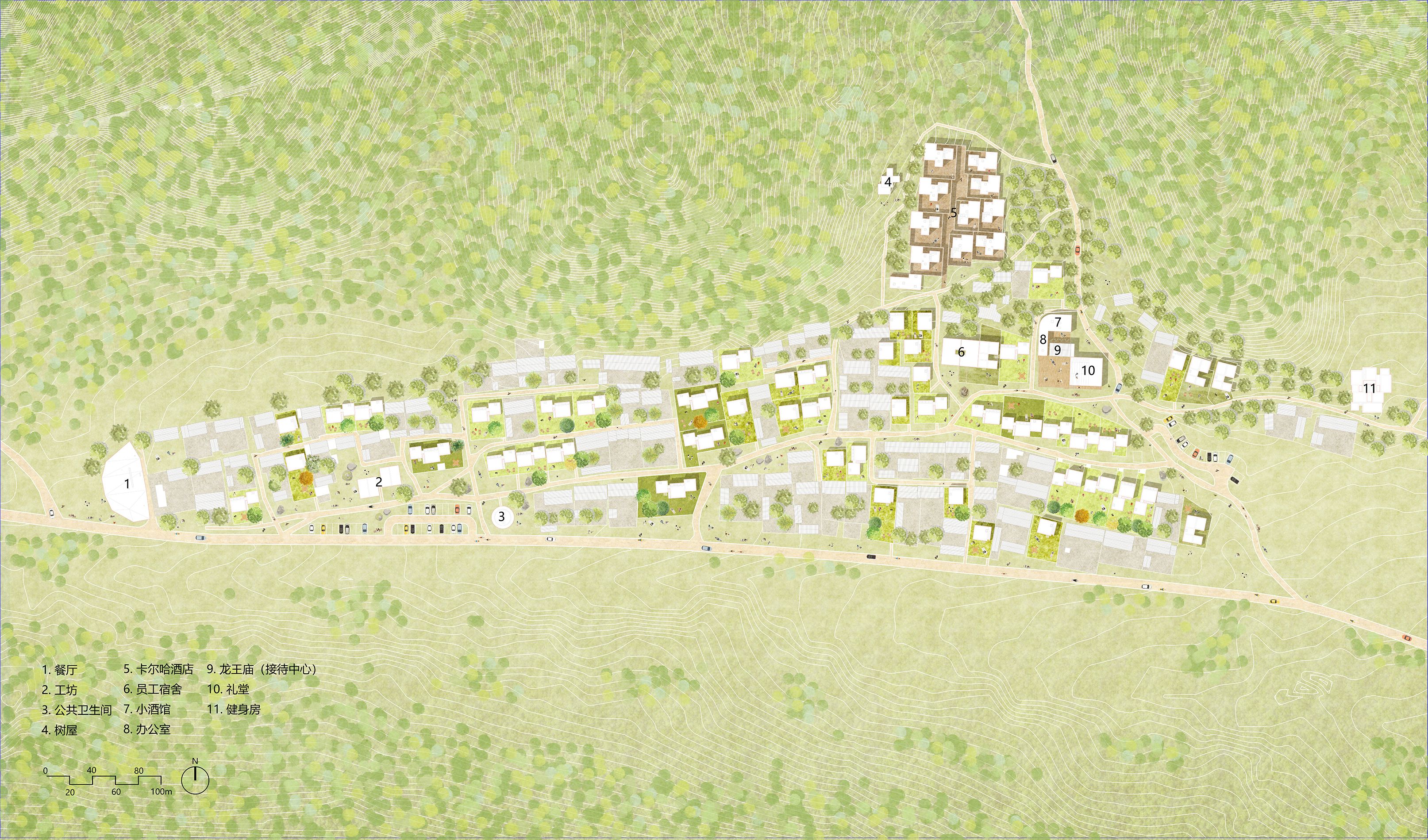
▲“沃里屯”总平面图 ©CPLUS
▲General plan of “Unico” ©CPLUS
生于风土的坡地聚落
A Slope Settlement Born of the Terroir
沃里屯的大部分房子,是提供给准备在此长期居住的新村民的。然而,为了营建一个与外界保持良好互动的乡村社群,让更多城市人有机会走进沃里屯,村子里还规划了供访客短期停留的居住空间,即KALHA酒店。
Most of the houses in Unico are offered to new villagers who are planning a long-term stay. However, for the purpose of building a well-connected village community and give more urbanites a chance to discover Unico, the village has also planned a living space for visitors to stay for a short period of time, namely the KALHA Hotel.

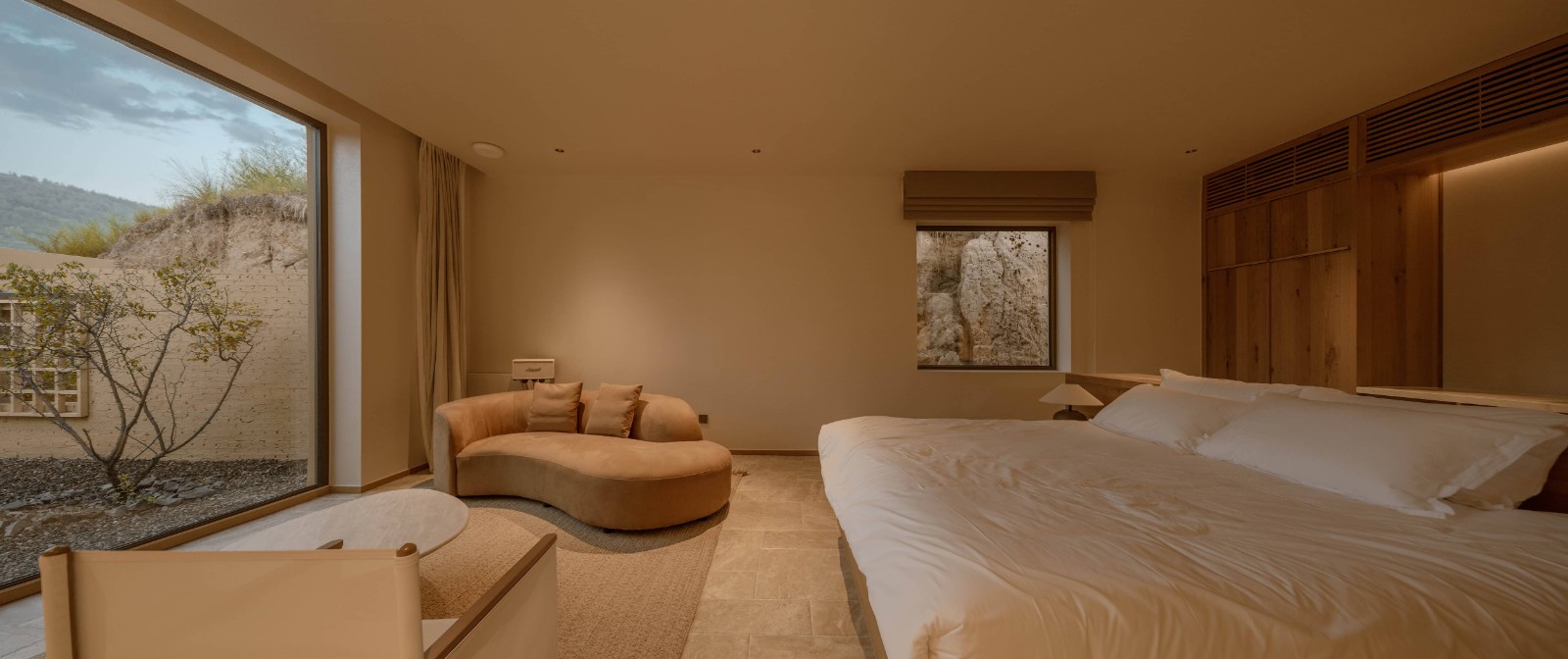
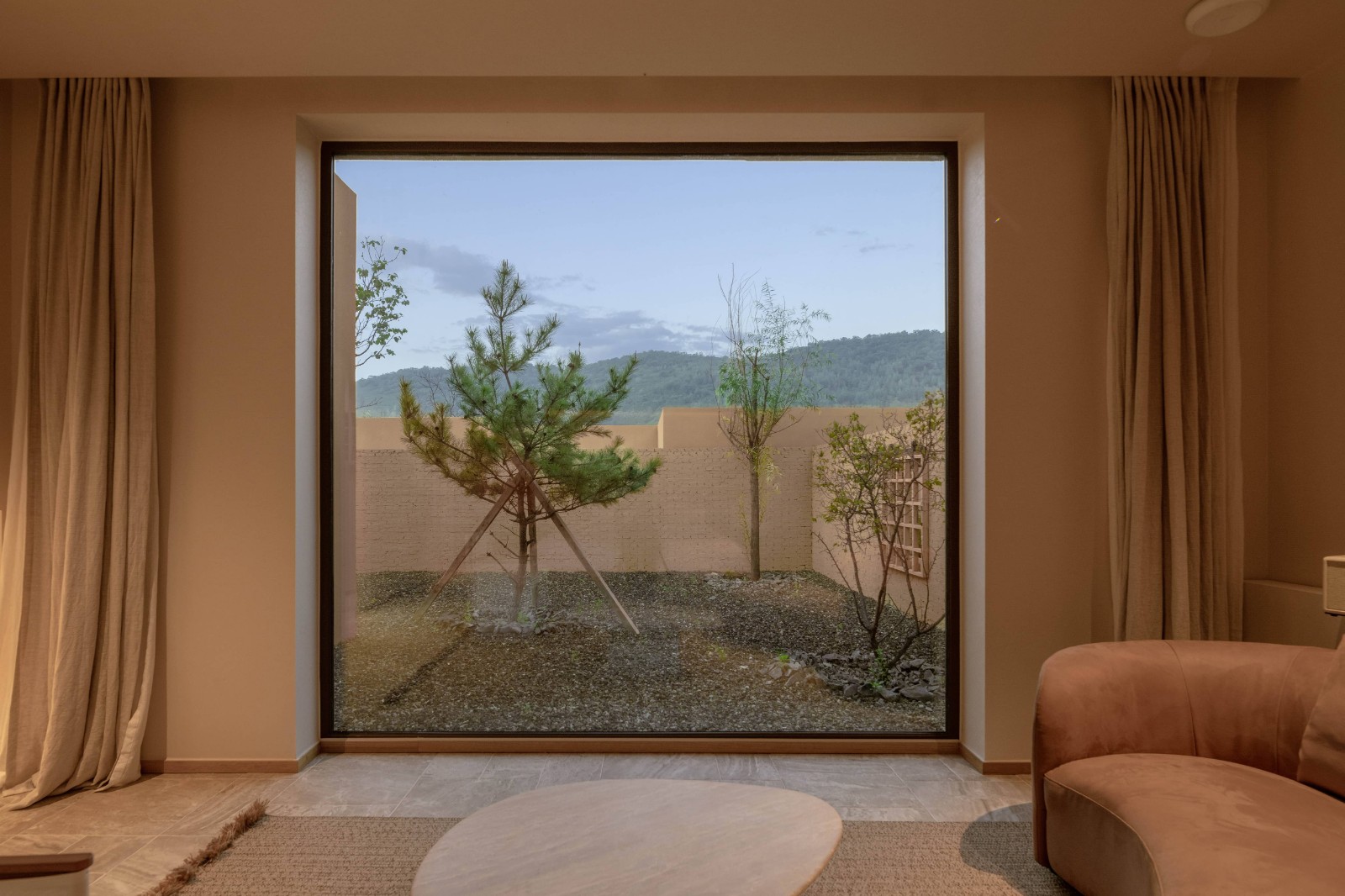
▲诞生在沃里屯的新酒店 ©刘晶
▲A new hotel born in “Unico” ©Liu Jing
“KALHA(卡尔哈)”这个特别的名字,前半部分源自“KALGAN(喀尔干)”,蒙语意为“边境”,是英语世界对张家口的旧称,“HA(哈)”则是蒙语中象征坚固与保护的“墙”。两个词结合在一起,寄托了酒店主人对这片古老土地的敬意以及对酒店未来的期冀。
The front part of the name “KALHA” is derived from “KALGAN”, which means “border” in Mongolian, is the old English-speaking world's name for Zhangjiakou, and “HA” is the Mongolian word for “wall”, symbolizing solidity and protection. The combination of the two words conveys the hotel owners' respects for this ancient land and their hopes about the future of the KALHA.

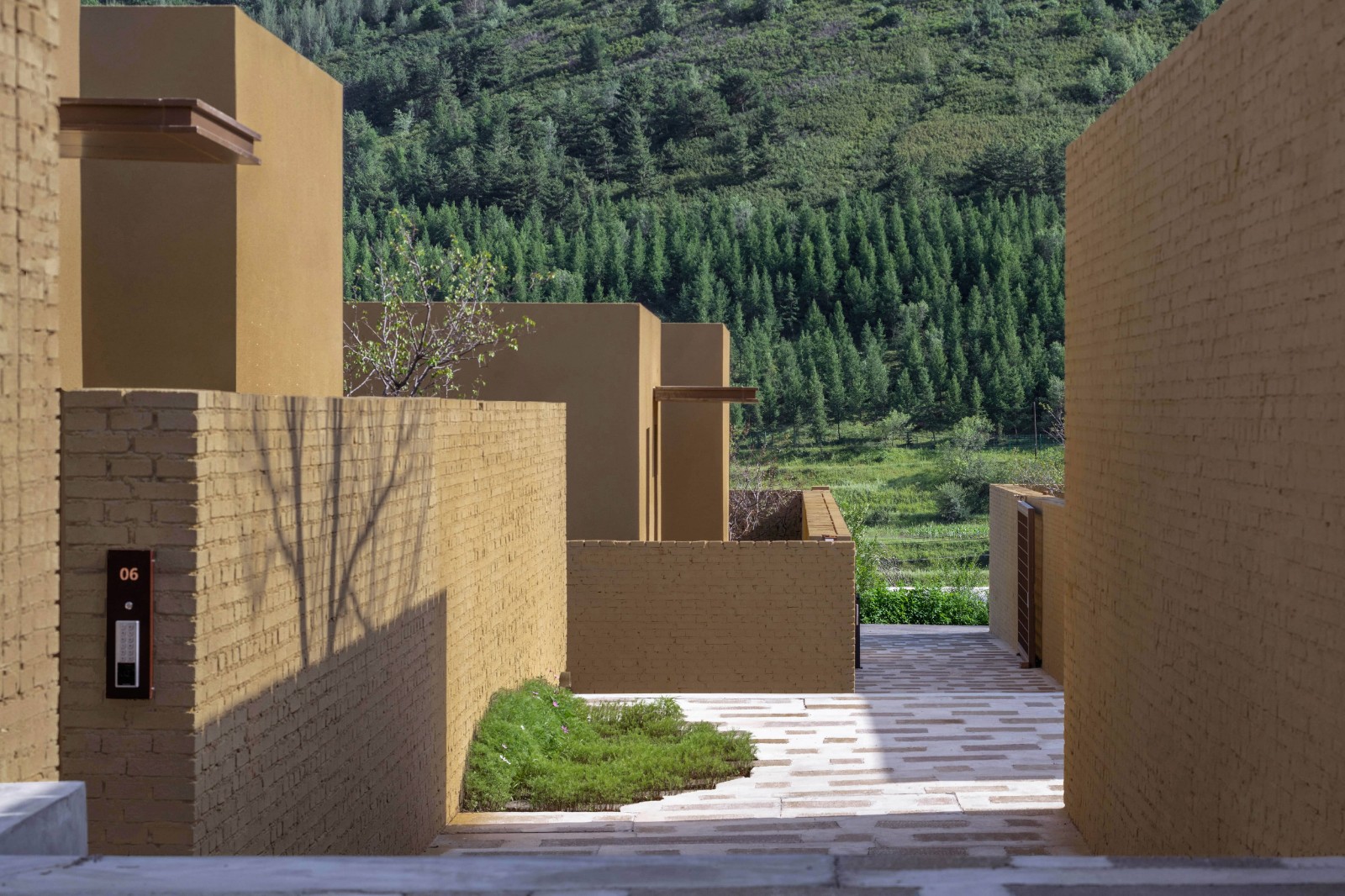

▲象征着坚固与保护的院墙 ©刘晶
▲Courtyard wall symbolizing solidity and protection ©Liu Jing
区别于散落在村子里的独立住宅,KALHA酒店是一个由墙围合成的、连续的空间系统。酒店因循地势由南向北逐级抬升,并以水平延伸的姿态匍匐在村落北侧的坡地上。东、南方向视野开阔,近处村落与远方山峦一览无余。
Different from the independent houses scattered in the village, KALHA Hotel is a continuous spatial system surrounded by walls. The hotel follows the terrain rising from the south to the north and extending horizontally on the slope to the north of the village. The panoramic view towards the east and south opens up to the village and the mountains.
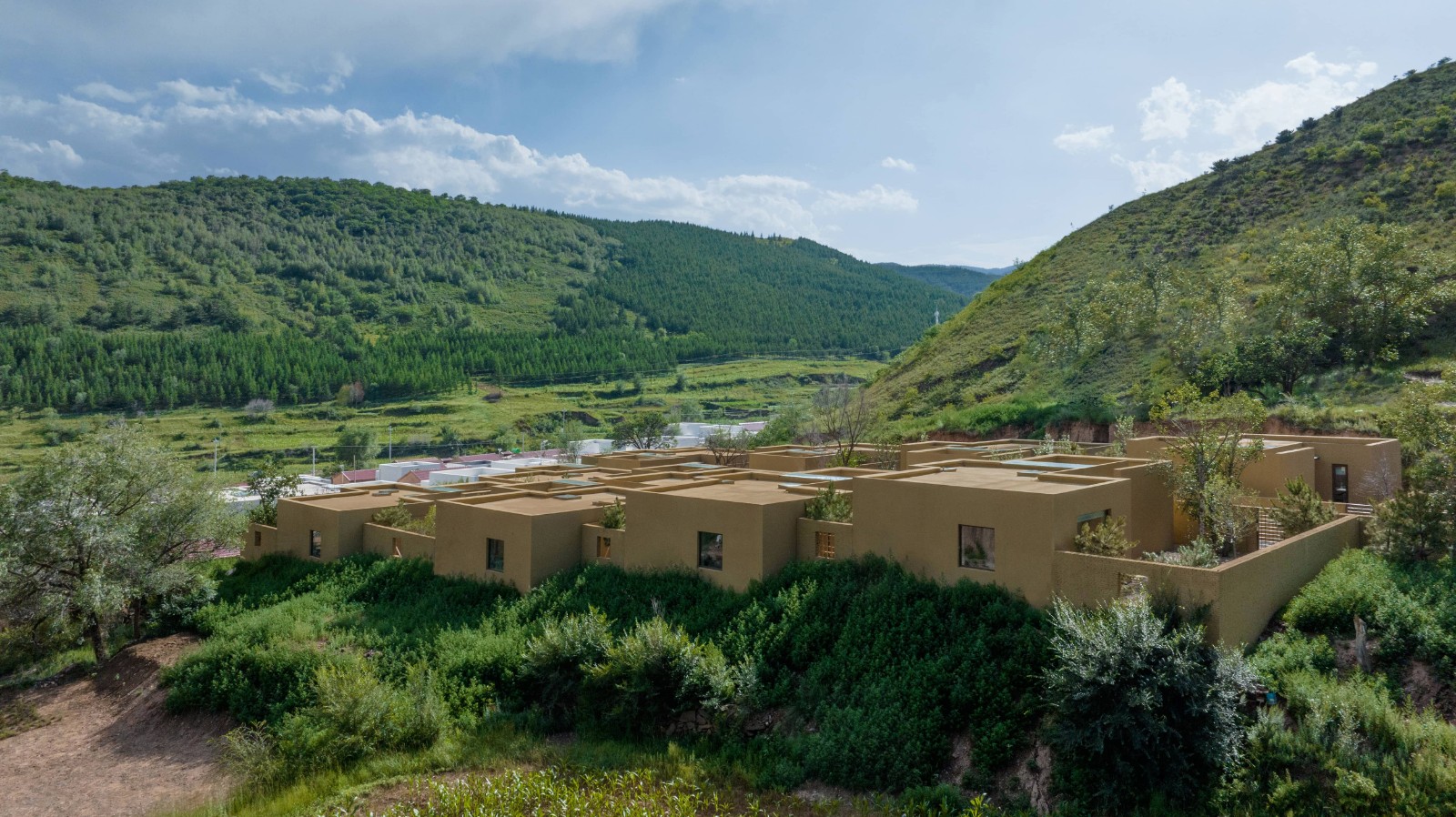
▲逐级抬升的客房单元 ©刘晶
▲Step-up guest room units ©Liu Jing
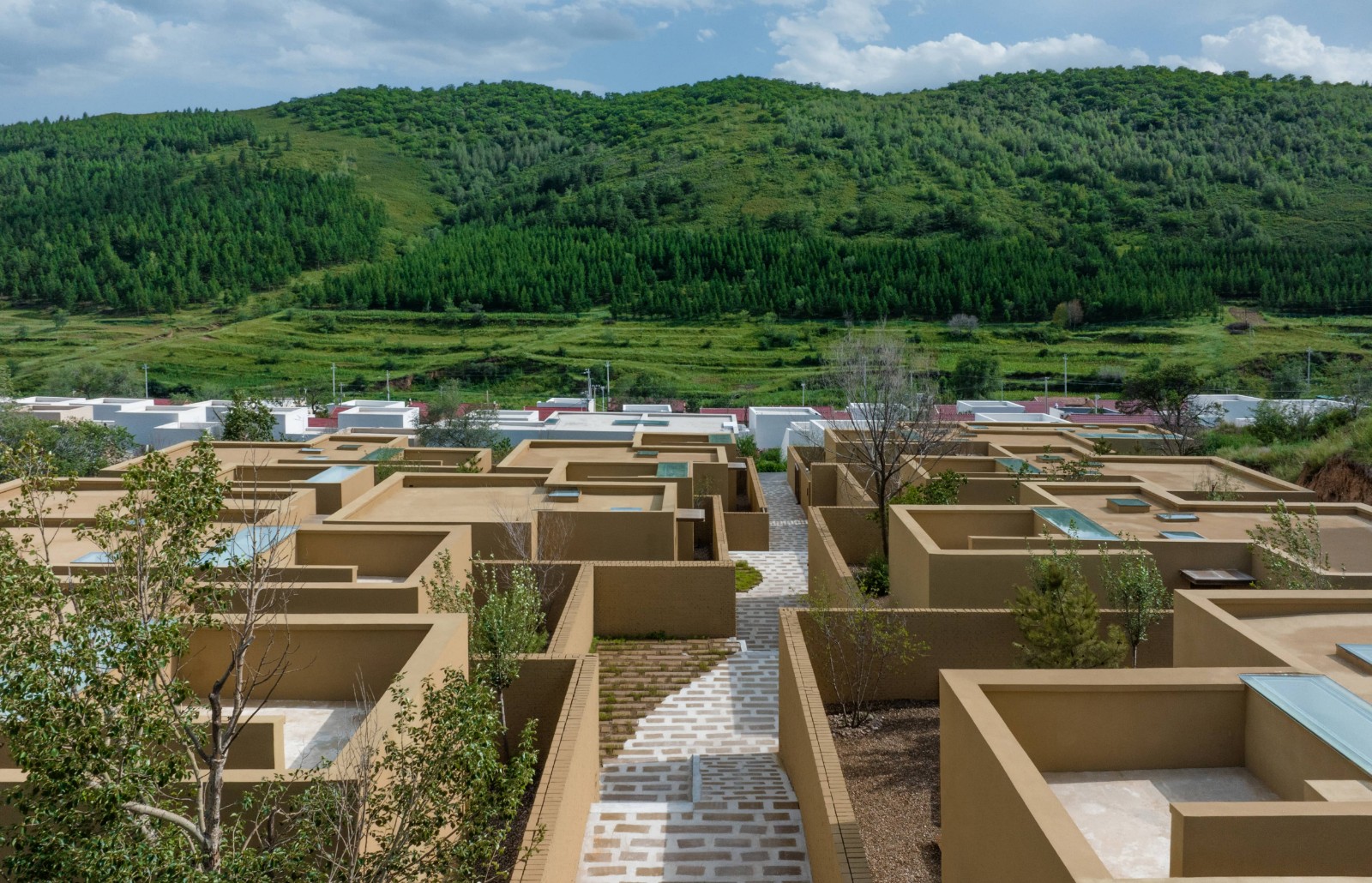
▲酒店南向风景 ©刘晶
▲South view of the hotel ©Liu Jing
建筑整体没有明确的中心轴线,不规则的平面布局延续了村落自发生长的形态特征。承袭山村原生风貌,10间客房单元随场地高差产生了4个不同的标高。每个单元都是在不破坏宅基地红线的基础上形成的,因此其大小和内部空间皆不相同。
The overall construction does not have a clear central axis, and the irregular layout keeps the characteristic of the spontaneous growth of the village. Inheriting the original landscape of the mountain village, the 10 guest rooms units have 4 different elevations according to the height difference of the site. Each unit is formed without destroying residential red lines, so its size and internal space are not standardized.
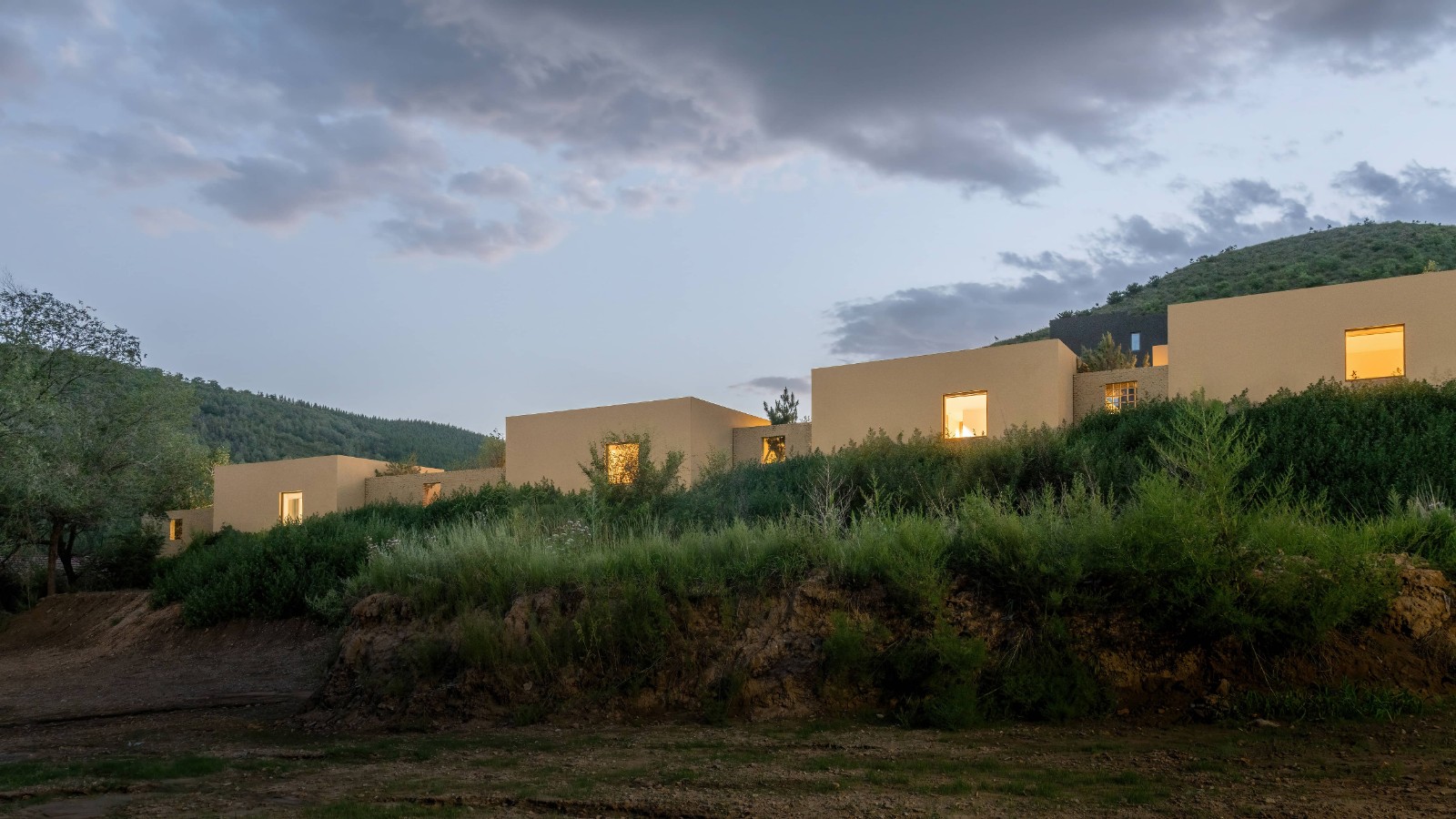
▲坡地上的酒店 ©刘晶
▲Hotel on the slope ©Liu Jing
KALHA酒店无论从哪个方向看上去,都没有所谓的建筑主立面,而是呈现出一种自由随机的形态。独立的客房单元组合在一起,犹如一个零散多元的小型聚落。聚落通过墙体围合起来,又好像一座完整的建筑。曲折的院墙与自然地形契合,让酒店与村庄有机融为一体。
KALHA Hotel appears to have no main facade from any direction, but rather a free and random form. The individual guest room units are grouped together like a small but diverse settlement. The settlement is enclosed by a series of walls and becomes a complete building again. The zigzag courtyard wall fits into the landscape, allowing the hotel to integrate organically with the old village.

▲零散多元的小型聚落 ©刘晶
▲Dispersed and diverse small settlements ©Liu Jing
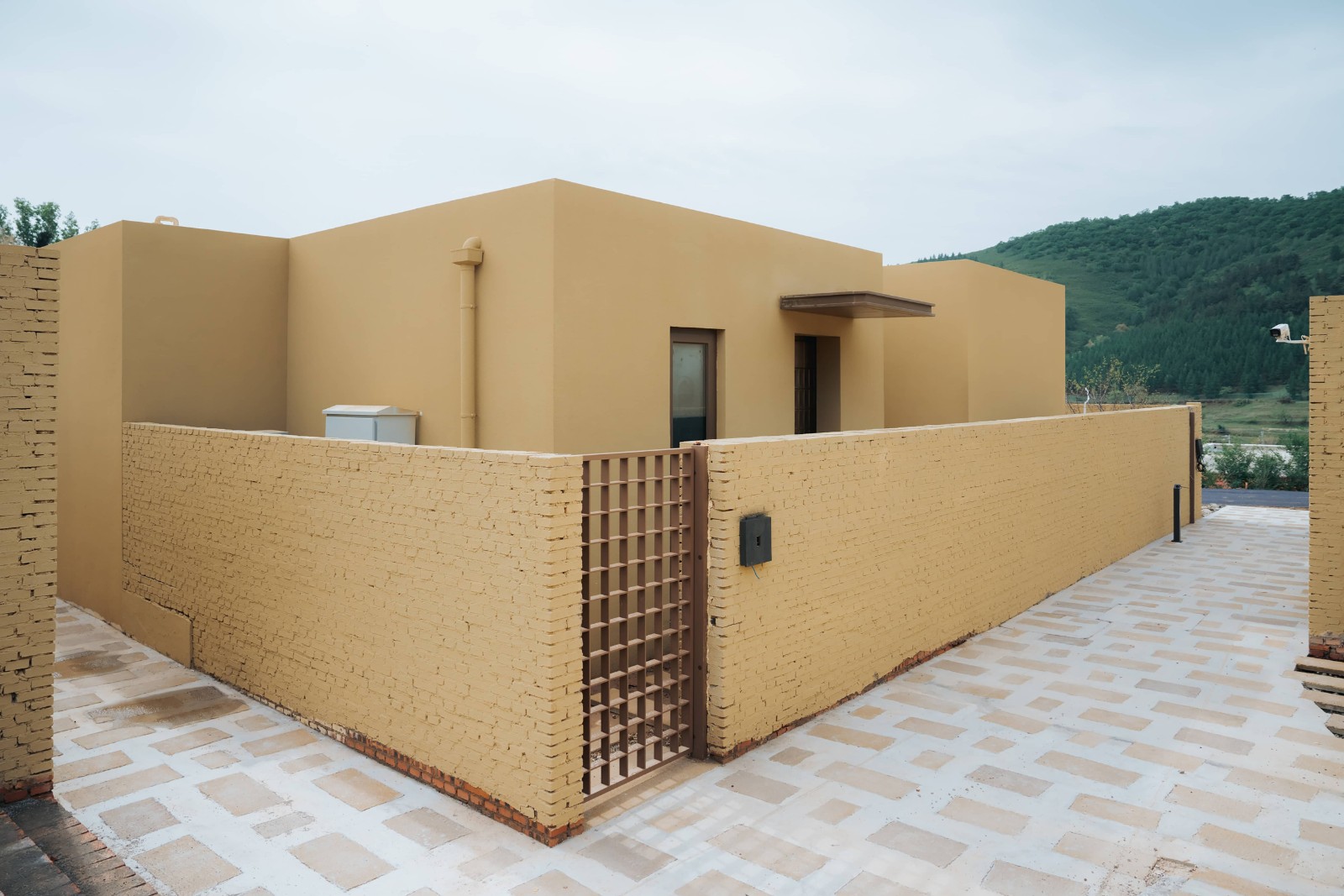
▲独立的客房单元 ©船长
▲Independent guest room unit ©Captain

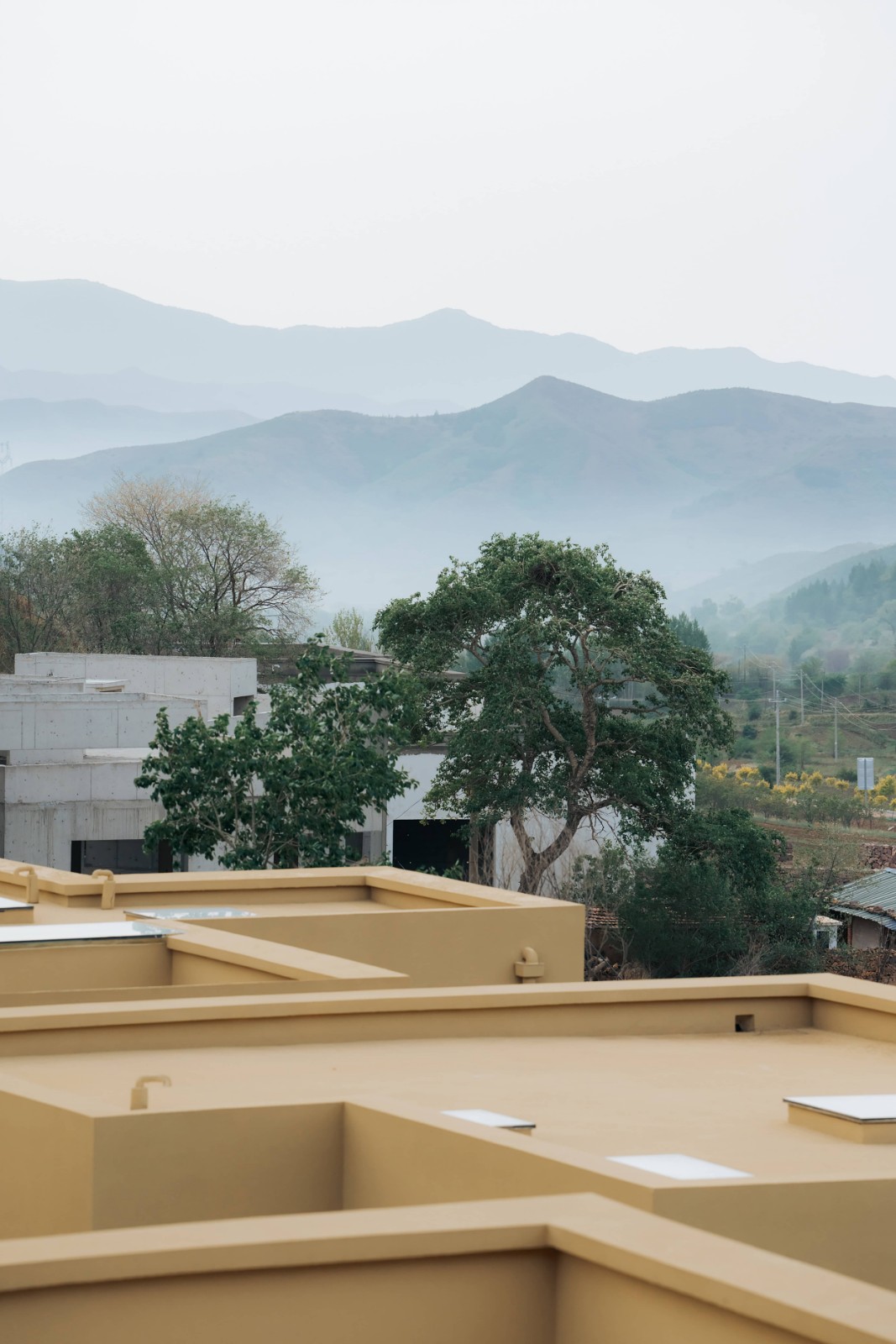
▲曲折的院墙 ©船长
▲Zigzag courtyard wall ©Captain
对外的闭合墙体不仅有助于提升管理和服务效率,还赋予了KALHA酒店基本的视觉形象。院墙与客房外墙皆选用了和场地土质颜色接近的涂料,远看像是从大地里自然生长出来的几何雕塑。
The external walls not only contribute to the efficiency of management and service, but also give the hotel an essential visual identity. Both the courtyard walls and the guest room facades have been painted in a color close to the soil of the site, resembling geometric sculptures growing naturally out of the earth from a distance.

▲客房外立面 ©刘晶
▲Guest room facade ©Liu Jing

▲客房入口处 ©刘晶
▲Guest room entrance ©Liu Jing
与此同时,围墙之内、院落之间也有着丰富的空间体验。昔日的村间小路变成了酒店内部的公共街道,纯净的墙面与开阔的空间尺度,能够满足展览、讲座甚至小型演出等公共活动。未来这里将成为酒店最具活力之地。
At the same time, there are rich spatial experiences within the walls and between the courtyards. The former village paths have been transformed into public streets inside the hotel, with pure walls and open spatial scales that can accommodate public events such as exhibitions, lectures and even small performances. In the future, this area will turn out to be the most dynamic place of the hotel.
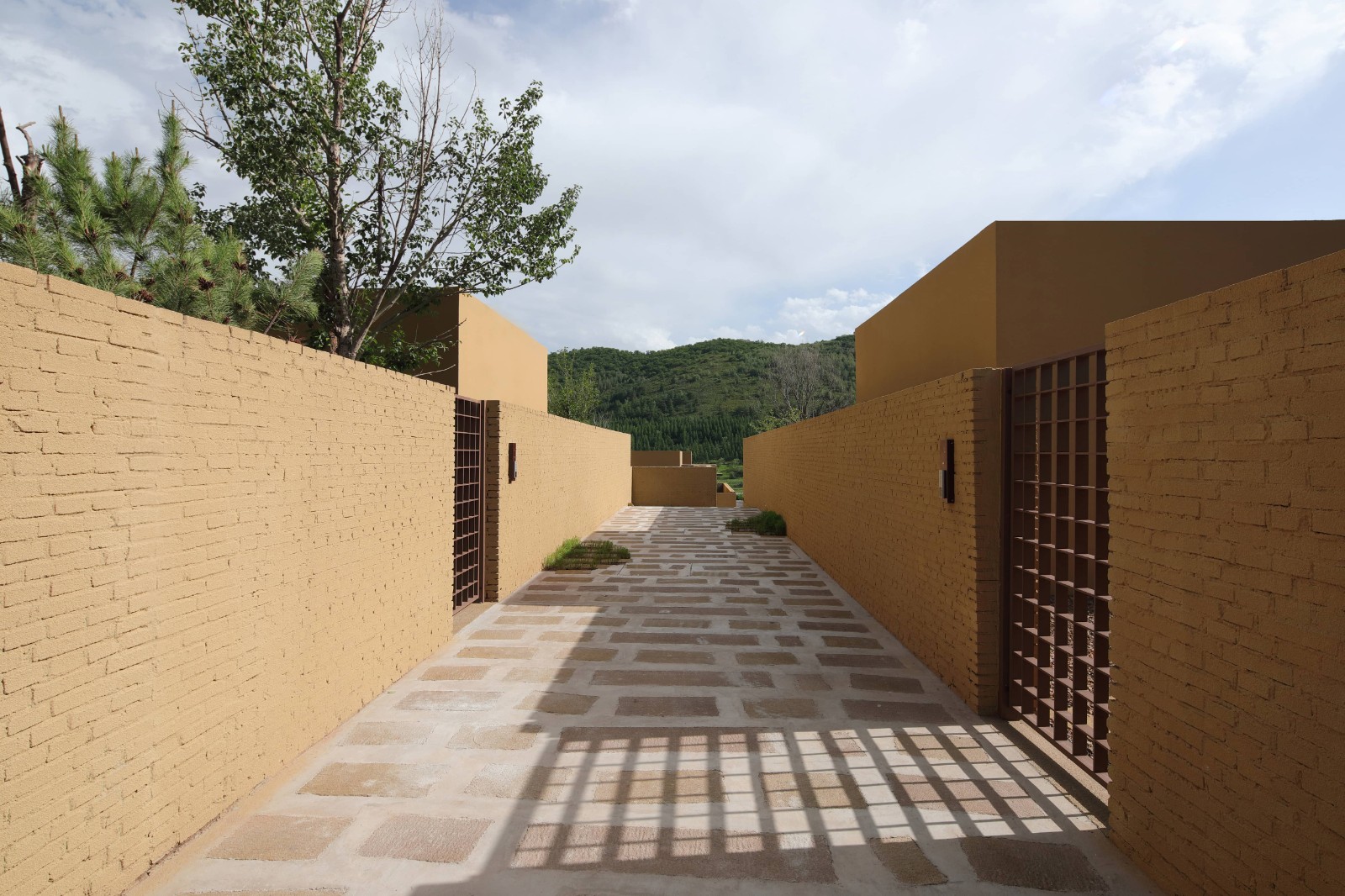

▲酒店内部街道 ©CPLUS
▲Street inside the hotel ©CPLUS
每间客房都拥有一个相对独立,内向的院落,很大程度上保护了住店客人的隐私。从房间看出去,院中草木和远山风景错落有致。为了制造更多人和自然接触的机会,建筑师在院墙上设置了可开启洞口。还有一部通往屋顶的楼梯,天气好的时候,住客能在露台休憩,享受沃里屯的迷人风光。
Each guest room has a relatively independent, inward-looking courtyard, which largely protects the privacy of the guests. The view from the room is full of plants in the courtyard and distant mountain scenery. In order to create more contact with nature, the architects have installed self-opening holes in the courtyard wall. There is also a staircase that leads to the roof, where, in good weather, guests can relax on the terrace and enjoy the stunning view of Unico.
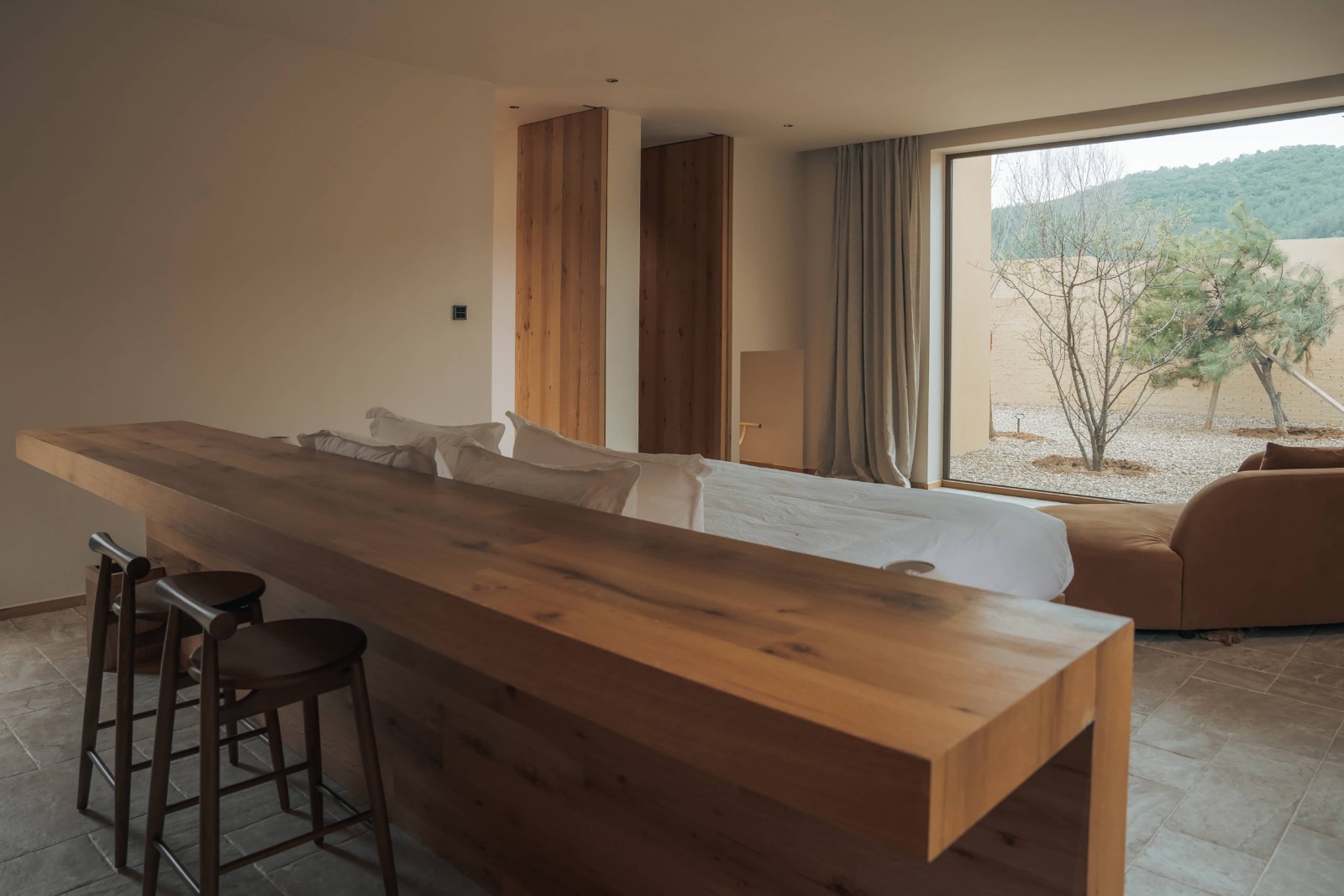
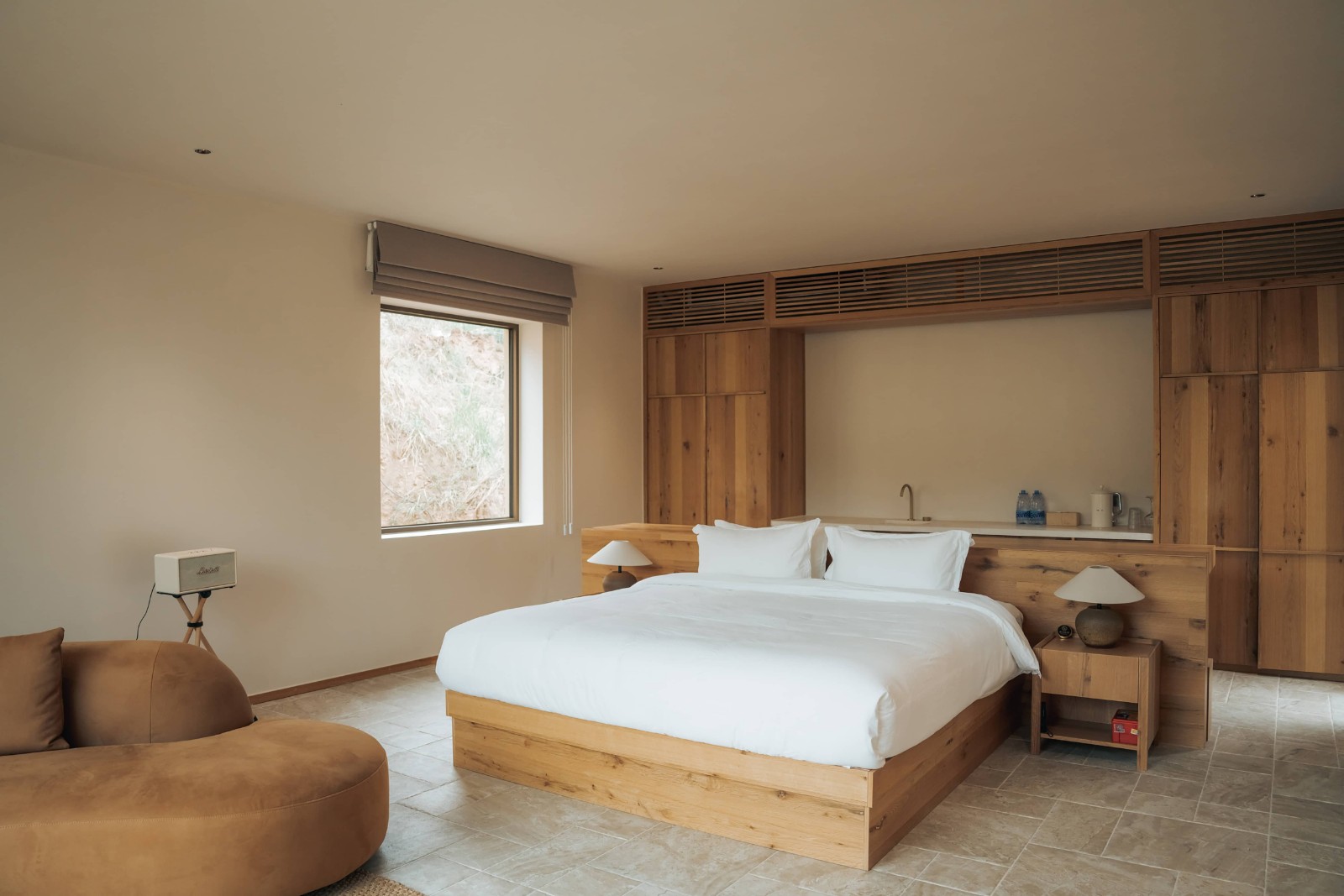
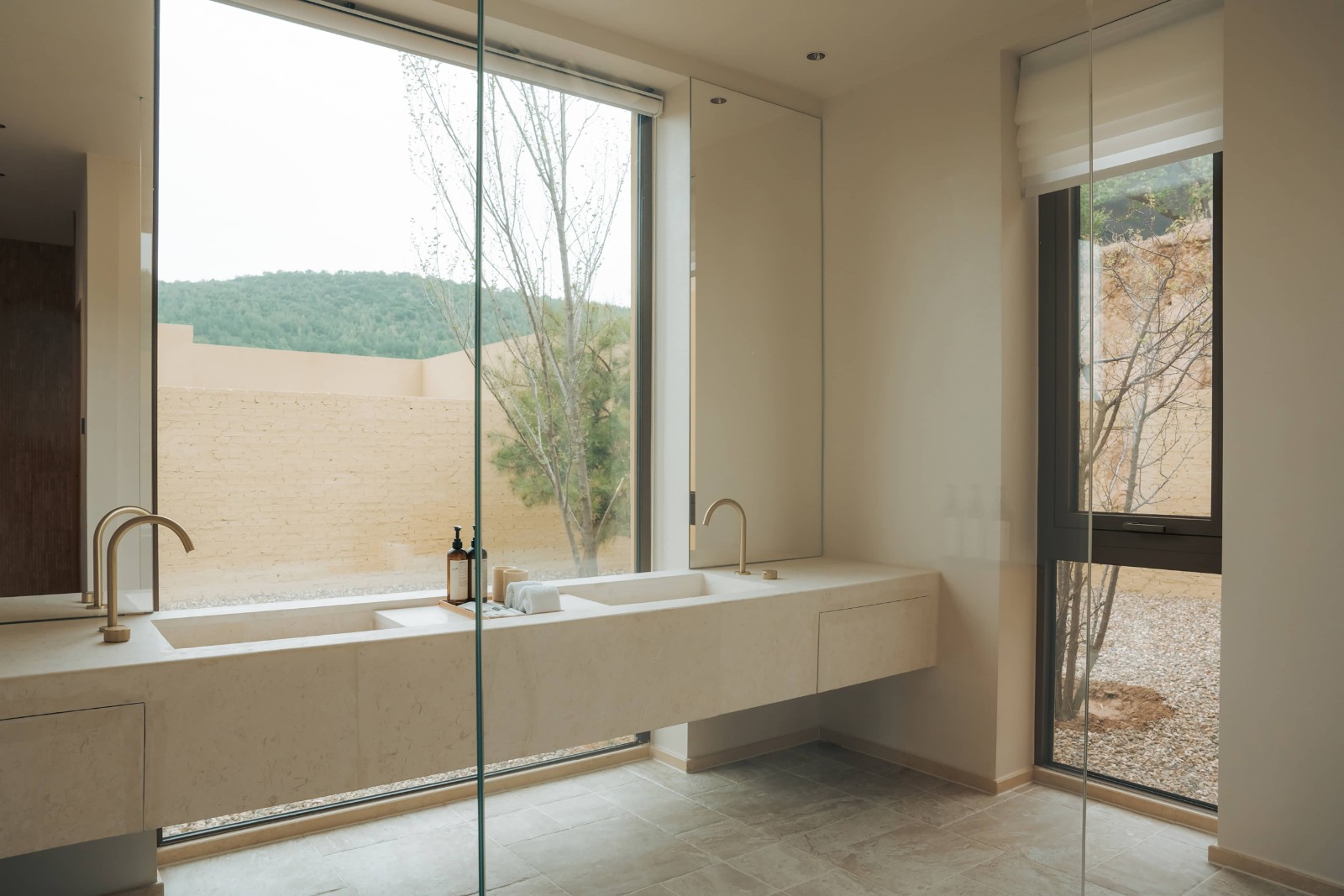
▲与自然贯通的客房单元 ©船长
▲Room units connected with nature ©Captain
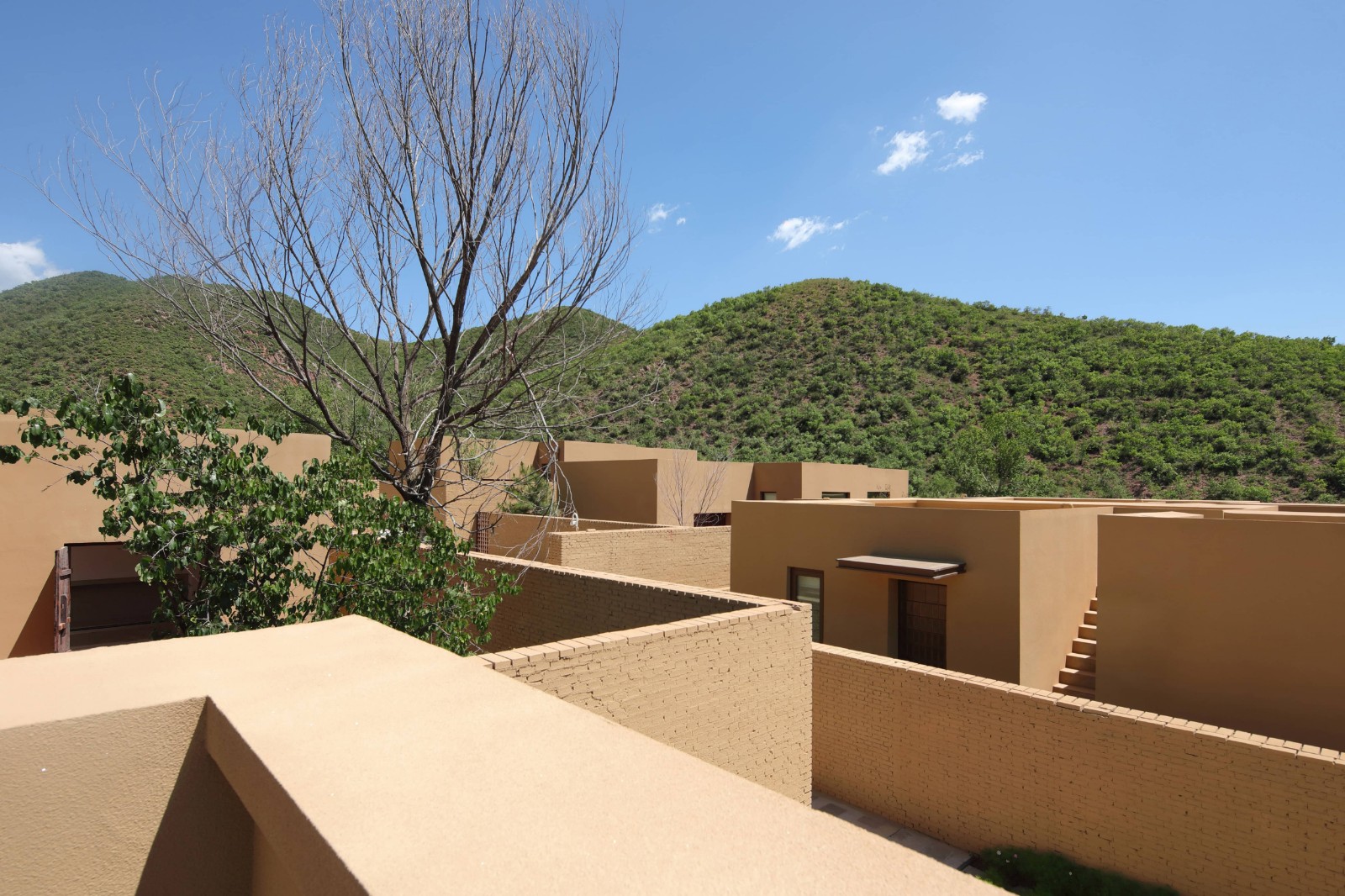
▲屋面风景 ©CPLUS
▲View from the roof ©CPLUS
项目信息
设计方:CPLUS
创始合伙人:程艳春、李楠
主持建筑师:程艳春
设计团队:薄忱、陈艺玮、郭峰
项目类型:酒店
项目状态:已建成
时间:2022年03月-2024年5月
地点:中国,张家口
建筑面积:1190平方米
摄影:刘晶、船长、CPLUS
Project Details
Design Firm: CPLUS
Founding Partners: Cheng Yanchun, Li Nan
Architect in Charge: Cheng Yanchun
Design Team: Bo Chen, Chen Yi Wei, Guo Feng
Program: Hospitality
Status: Built
Dates: March 2022-May 2024
Location: Zhangjiakou, China
Area: 1190 sq.m.
Photographs: Liu Jing, Captain, CPLUS
发文编辑/网站审核|杨思洋
版权©建道筑格ArchiDogs,转载请联系media@archidogs.com
若有涉及任何版权问题,请联系media@archidogs.com,我们将尽快妥善处理。
 "/>
"/>
 "/>
"/>
